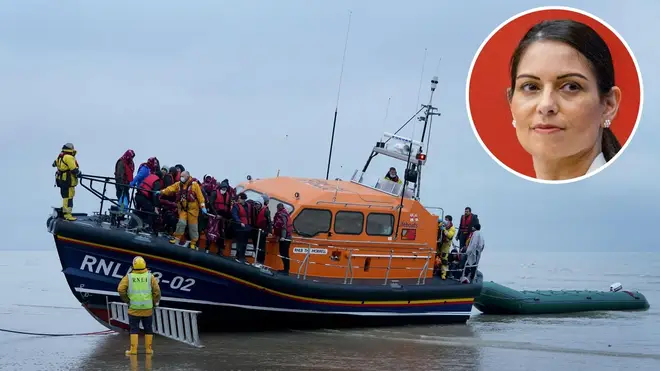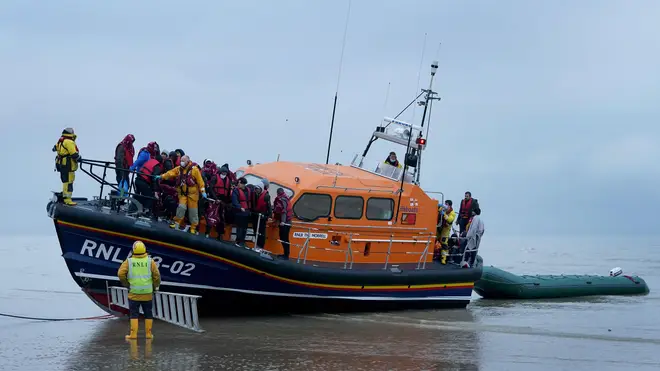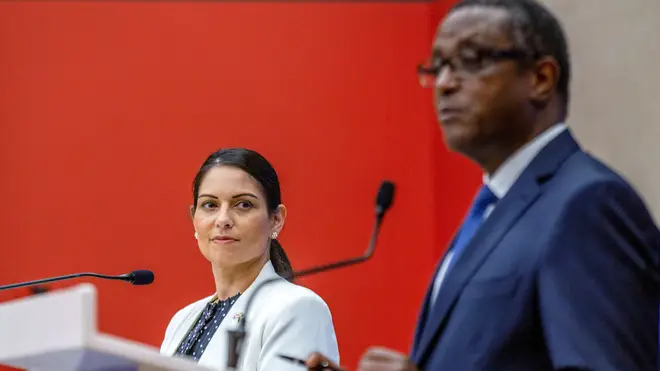
Rachel Johnson 7pm - 10pm
29 April 2022, 06:27

No small boat crossings have been detected in the Channel for at least nine days, after the controversial Rwanda migrant deal was announced.
Conservatives hailed the official figures as proof Home Secretary Priti Patel's deal was working while critics continued to harbour serious concerns about the idea.
It was not known if the plan was serving as a deterrent - some claimed the boats weren't heading out because of wind.
The Rwanda deal sees Britain deport asylum seekers it believes have arrived illegally to the East African country.
Ms Patel has admitted her plan will get challenged in the courts.
But she heralded the deal, saying: "For the first time, how a person arrives in the UK will affect the outcome of their claim. Anyone who arrives illegally and has passed through a safe country may be deemed inadmissible."
Read more: Patel hails 'world-class' plan to send migrants to Rwanda amid reports of Home Office row
She told the Daily Mail: "A few weeks ago I signed a migration and economic development partnership with Rwanda, which will mean those who make dangerous journeys in small boats, or in the backs of lorries, could have their asylum claim processed in Rwanda.

"If their claims are accepted, they will be supported to build a new and prosperous life there.
"By tackling illegal migration, we will be able to focus our resources on people who genuinely need our help, such as those from Ukraine."
Tory MP Andrew Bridgen said: "Priti's migrant policy is working already. No illegal migrant crossing for a week and no income for people traffickers, freeing up civil servants to work on Ukrainian evacuees.
Read more: David Lammy: It would seem Middle England is against the Rwanda asylum policy
"We should offer the illegal migrants already here the option of returning to France or going to Rwanda."
It had been argued that threatening people who make the perilous English Channel crossing in small boats with deportation to Rwanda would deter them, stopping the potentially fatal accidents in the busy shipping lane.

Save the Children Chief Executive on the UK's Rwanda refugee deal.
A total of 263 people made the journey over seven small boats on April 19 but since then, Government figures say no crossings were detected.
More than 28,000 people are thought to have crossed in 2021, and more than 4,000 have done so in 2022.
But the deal has been heavily criticised by campaigners and charities who say Rwanda is not an appropriate place to send asylum seekers.

Bond, a UK network of NGOs, joined with more than 160 other British organisations to condemn the plan earlier in April.
Opponents said it was "fundamentally out of step with widespread public support for refugees in the UK".
"Sending people seeking asylum to Rwanda will cause immense suffering, with the most vulnerable people bearing the brunt," they added.
"This is a shamefully cruel way to treat people who have come to the UK to seek protection, fleeing persecution or conflict."
The criticism was compounded when it emerged the British Government had condemned Rwanda for failing to carry out "transparent, credible and independent investigations into allegations of human rights violations including deaths in custody and torture".
A statement by the UK's international ambassador for human rights, Rita French, said in July 2021: "We were disappointed that Rwanda did not support the UK recommendation to screen, identify and provide support to trafficking victims, including those held in government transit centres."
Reports and some social media users claimed the lack of crossings was down to the wind rather than the Rwanda deal proving to be a deterrent.